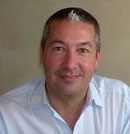Likely a consequence of climate change, chestnut trees bloom all year round. Especially those of the weekly press. Certainly, while waiting for the programmed issue on Moses, Jesus, Mohammed, the Freemasons, the inner workings of international finance, or the secrets of the Templars, Le Point avoided, unlike others, “the rumor affair at the Élysée.” It opted on the cover for the striking work of the philosopher Michel Onfray on psychoanalysis (“The Twilight of an Idol, the Freudian Fabulation,” Grasset). The magazine publishes its “best excerpts.” Quite bad eventually. The creator of popular universities of taste tackles psychoanalysis as a philosopher heavily burdened by a worldview, a “Weltanschauung” whose principle has always been rejected by depth psychology. Ultimately stumbling over his own theoretical assumptions. Judge for yourselves!
The so-called “magical world” created by Freud? The father of psychoanalysis never ceased to denounce its infantility and illusion, recalling in passing the three narcissistic wounds inflicted on humanity by scientific discoveries: Copernicus proves that the Earth is not the center of the Universe, Darwin explains that humans come from an animal evolution, and Freud that the “ego” is not the master of its decisions in its own house. One understands and shares the author’s apparent rage.
The latent anti-Semitism of Freud? It is true that upon leaving Austria in 1938, already under the sway of Nazi Germany, Freud was “invited” by the Gestapo to write a few lines about “not having been mistreated.” At 82 years old and ill, the founder of psychoanalysis dared to add to this imposed statement an addendum in which he “strongly recommended the Gestapo to anyone.” A way to illustrate his reflections on “Wit and its Relation to the Unconscious” (1905) as well as his theory on “humor” (1927) where the latter “replaces anger.” There is no need to endorse Anna Freud’s 1977 speech in Jerusalem on this “Jewish science,” a notion probably rejected by her father: for those who know a little Talmudic thought, “Durcharbeit,” psychoanalytic elaboration, undoubtedly draws some of its precious articulations from it.
The failure of the therapeutic claims of psychoanalysis? The latter, much to the philosopher’s dismay, never claimed them. It heals, if one dares say, almost in spite of itself! A fundamental argument that adds fuel to the Freudian fire: the Viennese took great pains throughout his life to sharply criticize the “Furor sanandi,” the fury to heal of clinicians. He wished, by doing so, to prevent the medical establishment from taking hold of the new science to avoid potential biologizing and organicist drifts. Not to be blinded, not to fall into the snares, and become prey to the symptom to better decipher its unconscious mechanisms remains a key element of the “couch” practice. And the very condition of a success that it does not seek “ab initio” but obtains “incidentally.”
The Freudian pansexualism? It is truly an insult to Freud to reduce his “libido sexualis,” as Michel Onfray claims, to a series of acting out! It is difficult to overlook all the analytical elaborations on the nature and “fate of drives,” their transformation, their oscillations between life and death, their borrowing from civilization at the crossroads of ontogenetic and phylogenetic, of human and world. To sum up in Lacan’s way: the phallus is not the penis!
Psychoanalysis, a religion doubled with a sect? Far from the image of a dogmatic and stifling revelation, analysis proceeds from a recurring critique of its positioning in relation to scientific fields where a “power” could seek to confine it. It also implements an epistemological distancing in its practice: every didactic analysis, every supervision aims to rid the clinician of the risk of the compulsion to dominate the patient. Additional proof of the space of freedom it opens, Freud’s “enfants terribles” have been eager to shatter the so-called dogma into multiple and sometimes fruitful schisms.
In the vehemence of the tone used by Michel Onfray lies his symptom: whatever the philosopher of hedonism thinks, who, in 2006 “thought of leaving National Education to look into psychoanalysis,” he is much closer to the couch than he accepts. A bit like those patients who lie down and assert categorically: “Today, I have nothing to say!” A sign heralding the best sessions. So, Michel Onfray is welcome!


